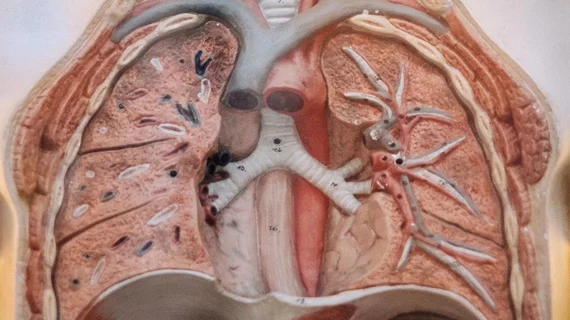AI helps radiologists spot lung cancer on chest x-rays
Radiologists who used a newly developed AI software more accurately spotted malignant lung nodules on chest x-rays, according to research out of Seoul, Korea.
In fact, clinicians who took a second look at x-rays using the deep learning software improved their sensitivity, on average, by 5.2%. Those who used the commercially available tool also yielded fewer false-positive exams.
Writing in a Nov. 12 study published in Radiology, Byoung Wook Choi, MD, PhD, explained that certain characteristics of lung nodules, such as their size, density and location, make it difficult for radiologists to detect them on chest x-rays. Choi and his colleagues from the Yonsei University College of Medicine sought to determine if a deep convolutional neural network (DCNN) might help.
They retrospectively collected 800 x-rays from four different centers, including 200 normal chest scans and 600 with at least one imaging-confirmed malignant lung nodule. In total, the researchers analyzed 704 tumors.
Three radiologists from each center read the chest x-rays with and without using the DCNN. On average, their ability to spot cancer jumped from 65.1% without aid to 70.3% when using the neural network. And, the number of false positives per image dropped from 0.2 to 0.18 when using the software.
"Computer-aided detection software to detect lung nodules has not been widely accepted and utilized because of high false positive rates, even though it provides relatively high sensitivity," Choi explained in a statement. "DCNN may be a solution to reduce the number of false positives."

